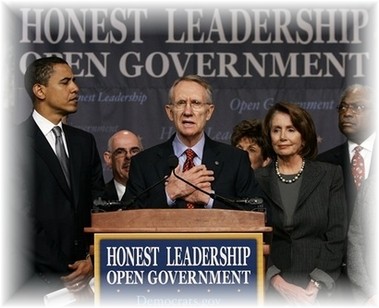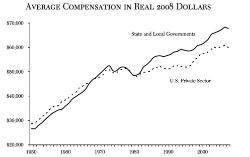California Public-Sector Union Bosses Proving They Can Squeeze Blood From a Turnip
(Source: April 2010 Forced-Unionism Abuses Exposed)
By declaring bankruptcy, an insolvent municipality may avoid paying its bondholders anything near what it owes them. It may even succeed in cutting public employees’ health benefits. But it will not succeed in doing one thing that the bankrupt city of Vallejo, California absolutely must do to get back on its feet: Rescind labor policies that encourage healthy municipal employees to retire when they are 50 or 55 with lavish pensions.
That is what public-sector union bosses are now out to prove in the Golden State. Two years ago this spring, Vallejo, a seemingly prosperous San Francisco suburb of roughly 120,000 residents, voted to file for Chapter 9 bankruptcy.
In 2008, Vallejo’s budget, like those of many other California municipalities, had been driven deep in the red by government union bosses. Union officials wielding monopoly-bargaining power handed to them by state law had driven up taxpayer costs for compensation of public-safety employees and retirees so high that they consumed 74% of Vallejo’s $80-million general budget.
Public-safety employee wages, though surely generous, were not the reason municipal spending was out of control. The real culprits were overtime costs, driven by complicated and counterproductive Big Labor work rules, and pension costs, driven primarily by union boss-instigated retirements of employees still in the prime of their lives.




